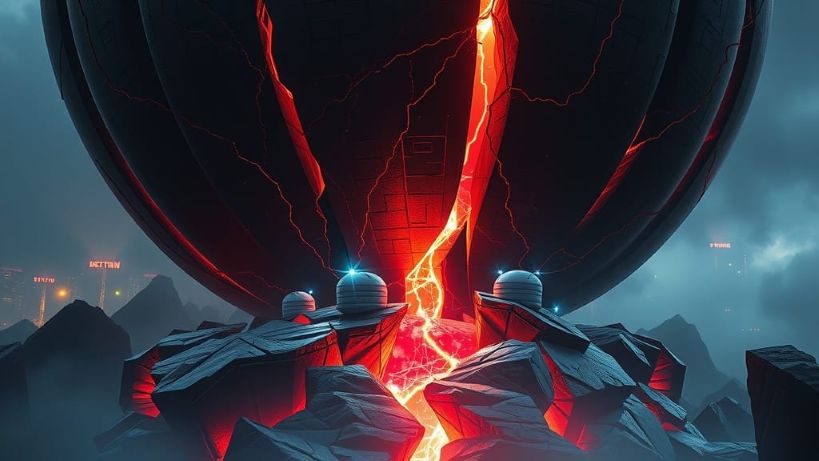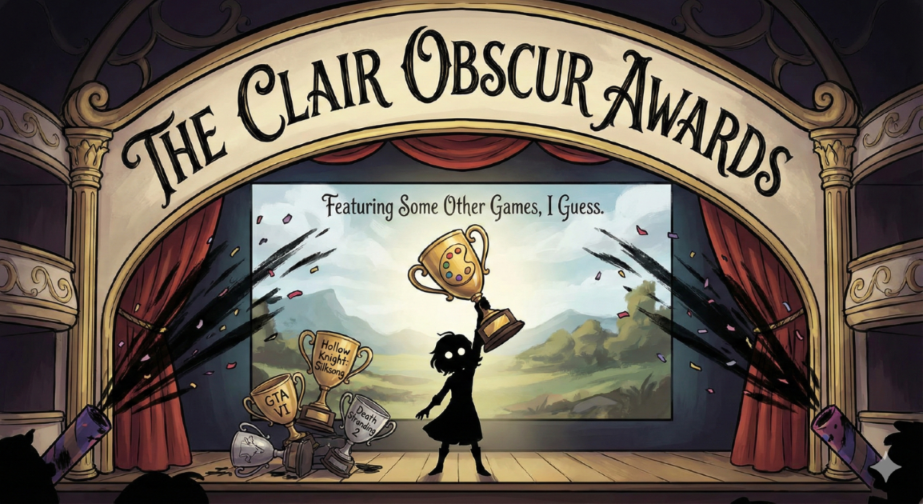Alright, Warscarz0r community, settle in!
We’ve talked about the games we’ll be losing sleep over, but the gaming world is so much bigger than just the titles hitting our hard drives. Behind the pixels and the endless grind, there’s a fascinating, sometimes chaotic, world of business, innovation, and seismic shifts that shape the very games we play.
Forget just knowing what’s coming out; let’s dive into the meta-game of the gaming industry. We’re talking about the big moves, the jaw-dropping tech, and the whispers of what the future of gaming actually looks like beyond just faster GPUs. This is where the real power-ups are found, shaping everything from your favorite franchise to how you experience your next virtual world.
Let’s unravel some of the most exciting, bewildering, and potentially game-changing developments shaking up the industry right now!
Beyond the Hype: The Industry Quakes & Future Shocks Shaping Gaming in Late 2025
We gamers are always glued to release dates and new trailers, but what about the tectonic plates shifting beneath the industry itself? Late 2025 isn’t just about new games; it’s about the seismic shifts in how games are made, bought, and even how we think about playing them. These aren’t just boardroom buzzwords; these are the undercurrents that will define our gaming experiences for years to come.
1. The AI Revolution: More Than Just NPCs (A.I. in Game Development & Content Generation)
We’ve all seen AI-powered NPCs get smarter (or creepier), but the real game-changer isn’t just in the game world, it’s behind the scenes. By late 2025, Generative AI is rapidly evolving into a potent tool for game developers.
- The Big Deal: AI isn’t just creating pretty pictures anymore. It’s now being used to:
- Rapidly Prototype Worlds: Imagine an AI that can build entire open-world maps, complete with terrain, foliage, and even basic structures, in hours instead of months. This frees up human designers to focus on refining the fun.
- Automate Asset Creation: Need a hundred variations of a rusty barrel for that post-apocalyptic environment? AI can generate them, allowing artists to spend their time on unique, hero assets.
- Dynamic Storytelling: AI could potentially adapt narratives on the fly, crafting unique quests or character interactions based on player choices and behavior. Think truly emergent storytelling.
- Warscar’s Take: This could be huge for the kind of deeply simulated, open-world survival games we love. Imagine a 7 Days to Die world where every playthrough feels genuinely new, with dynamic POIs or even entire biomes generated on the fly. It promises richer, more varied experiences, but also raises questions about the “soul” of a game. Will we ever feel the same way about a lovingly handcrafted ruin if an AI just “phoned it in”? The ethical debates are just beginning!
2. Cloud Gaming’s Quiet Resurgence (Infrastructure & Accessibility)
Remember when cloud gaming was going to replace consoles and PCs overnight? Well, it didn’t. But late 2025 sees a much quieter, more strategic growth for the technology. It’s less about replacing, and more about expanding access.
- The Big Deal: Microsoft’s Xbox Cloud Gaming (xCloud), NVIDIA’s GeForce NOW, and even services from Amazon (Luna) are focusing on:
- Bridging Hardware Gaps: Got a low-end PC or just a smartphone? Cloud gaming is increasingly allowing you to play AAA titles without expensive hardware.
- Expanding Reach: Integrations with Smart TVs and even in-car entertainment systems mean gaming is literally going everywhere.
- Subscription Ecosystems: Cloud gaming is becoming a core component of larger gaming subscriptions, making it an added value rather than a standalone product.
- Warscar’s Take: For our community, this is massive for accessibility. Imagine hopping into a co-op Project Z session from your laptop, your tablet, or even your phone, without needing a beastly gaming rig. It means more people can join the horde, more easily. While it might not be the primary way we play, it’s a powerful “secondary screen” or travel solution that’s only getting better.
3. The Indies Strike Back (Funding & Discovery Innovations)
While the industry often focuses on the mega-publishers, the indie scene is undergoing its own revolution, especially in terms of how games get made and discovered.
- The Big Deal: Beyond Kickstarter, we’re seeing:
- New Funding Models: Platforms like Itch.io and specialized indie investment funds are empowering smaller teams to bypass traditional publishers, retaining more creative control.
- Community-Driven Development: More developers are embracing open betas, direct Discord feedback, and even early access periods that feel more like ongoing conversations with their players.
- AI-Assisted Indies: Smaller teams are leveraging the very AI tools mentioned above to punch far above their weight, allowing them to create rich, complex worlds with limited budgets.
- Warscar’s Take: This is where the innovation often truly happens. Many of our favorite survival games started as ambitious indie projects. A stronger, more vibrant indie scene means more unique, experimental, and passion-driven games that aren’t afraid to take risks. It means more hidden gems for us to discover and champion!
4. Epic Games’ Ecosystem Expansion (Unreal Engine & Store Dominance)
Epic Games continues to be a major force, not just with Fortnite, but with the omnipresent Unreal Engine and the Epic Games Store. They’re making moves that profoundly impact developers and players alike.
- The Big Deal: Epic is investing heavily in:
- Unreal Engine 5 Dominance: UE5 is becoming the standard for next-gen visuals, and Epic’s continued innovations (like Nanite and Lumen) are making it easier for developers to create stunning worlds. They’re literally shaping the visual future of gaming.
- MetaHuman Creator: This tool allows for the rapid creation of incredibly realistic digital humans, reducing a massive development bottleneck. Expect more lifelike characters in all sorts of games.
- EGS Exclusives & Developer Deals: The Epic Games Store continues to challenge Steam, securing exclusives and offering generous revenue shares to developers, which can influence where and how we buy our games.
- Warscar’s Take: For us, this means prettier games (yay!), but also potential shifts in where we purchase them. Epic’s influence on the tools developers use also means they have a say in the features and capabilities that become standard across the industry. It’s a powerhouse that’s always got something cooking.
The gaming world is never static. It’s a constantly evolving landscape, not just of zombies and resources, but of technology, business, and creativity. Keeping an eye on these larger trends helps us appreciate the games we play even more and anticipate the next big thing.
What do you think of these changes? Are you excited, nervous, or just ready for the next update? Let me know in the comments, and don’t forget to subscribe to the Warscarz0r YouTube channel for more deep dives, chaotic survival gameplay, and discussions on everything gaming!




